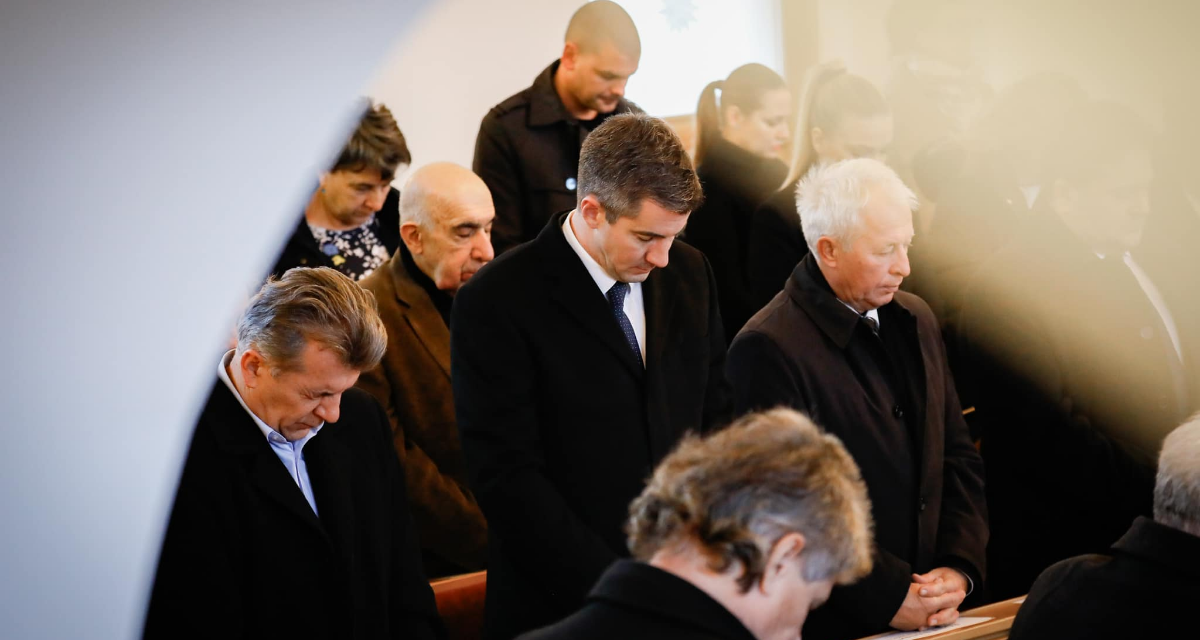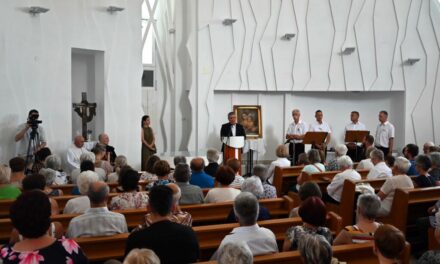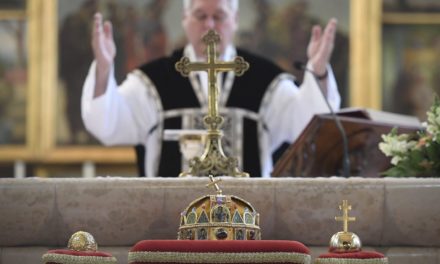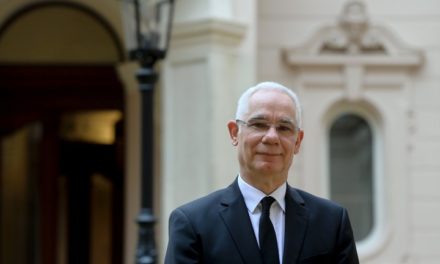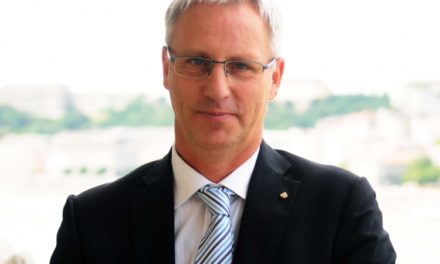The Reformed are well aware that two kinds of churches must be respected and kept in order during one's life: the church built of stone is the house of the congregation, and the church built of flesh and blood is the heart of the Christian.
Christian culture is not only one resource among many resources, but the source of all strength, the leader of the Fidesz faction declared on Sunday at the thanksgiving service held in the renovated Reformed church in Apostago, Bács-Kiskun County.
Máté Kocsis put it this way: Christian culture is "such a strong tire that has kept our communities, the nation, our families, past and future generations alive, so it unites the past and the future."
The villages and towns of Hungary cannot therefore remain without churches, they must be preserved for the children of the future, he pointed out, adding: in this spirit, the government included the Christian roots of Hungarianness and Hungarian statehood in the Basic Law.
"Because without Christian faith, everything that made the European man great and strong, or still does, comes to nothing," added Máté Kocsis.
According to the politician, Christian freedom and love are the source of peace and prosperity, which today is still the privilege of Westerners and, thanks to Saint Stephen, also the privilege of Hungarians.
"Without Christianity, all these are lost," he declared.
Máté Kocsis emphasized that the Reformed are well aware that two kinds of churches must be respected and kept in order during one's life: the church built of stone is the house of the congregation, and the church built of flesh and blood is the heart of the Christian.
He said that of the two, the heart will always be the more important, yet the order and purity of the church is a reflection of the order and purity of the heart. This is how the two things become one, the support of the other.
"In other words, those who take care of the congregation's house will be strengthened in spirit and heart," he added.
The leader of the Fidesz faction also said that today in the Western world "unfortunately, there are fewer and fewer churches that are kept clean and orderly, instead they are demolished as some kind of building that poses a public danger, for which the authorities issue a demolition permit, and which no one seems to care about anymore. it would be missing, because it has not been compatible with the image of the settlement for a long time". However, churches are not only architectural creations, and they not only strengthen local identity and the local community, but also earthly places of another reality, he noted.
Máté Kocsis said: in the last century, "there were those who tried to eradicate the desire for the Christian God from the hearts of Europeans, tried to poison the life of Christian communities, and even wanted to destroy them outright."
There are still a good number of people today who would "throw Christianity out the window as a bored, dried-up joke, who deny the sustaining power of Christianity and would erase it from the past and the present, and completely from the future," he said.
The politician touched on the fact that without churches, the sure point to which we can look up, wherever we are, disappears; the church tower can be seen from everywhere, and the sound of the bell can be heard everywhere.
"Through it, we know where we have to go, we know where home is, where everything we are is. The church is a compass," he said, adding: Hungarians have been building churches for a thousand years so that they can be seen and heard from afar.
Sándor Font, the Fidesz parliamentary representative of the region, spoke about how
"by renovating their reformed church, the apostates became the bearers and bearers of the Hungarian built heritage, a notable work of Hungarian cultural history".
He reported that in the past period, in addition to the apostage, the Reformed church or parish in Dunapataj, Hartá and Kalocsá could also be renewed.
Apostate pastor Ferenc Szanyi recalled: the church was renovated thanks to the HUF 165 million grant from the government and the Danube Reformed Church District, as well as the donations of many businesses and individuals.
During the reconstruction, the ruins of the Árpád-era circular church under the Baroque church were first excavated. Due to its dilapidated state, it was decided to demolish the rotunda to its foundations in the early 1800s, but some of its limestone was used to build the new church, which was completed in 1806.
The archaeologists also excavated the burial place of local dignitaries in the old church, and found eight graves in the different layers.
As mentioned, the excavation site was later buried so that the renovation of the current church could continue. A new gallery was built, under which a baby-mother room was created, the windows and doors were replaced, and the waterproofing of the building was solved. In addition to the barrier-free entrance, the church received new benches and electric bench heating was also installed.
MTI
Cover image: Máté Kocsis: Without Christian faith, everything that made the European man great and strong, or still makes it, comes to nothing
Source: Facebook/Máté Kocsis

